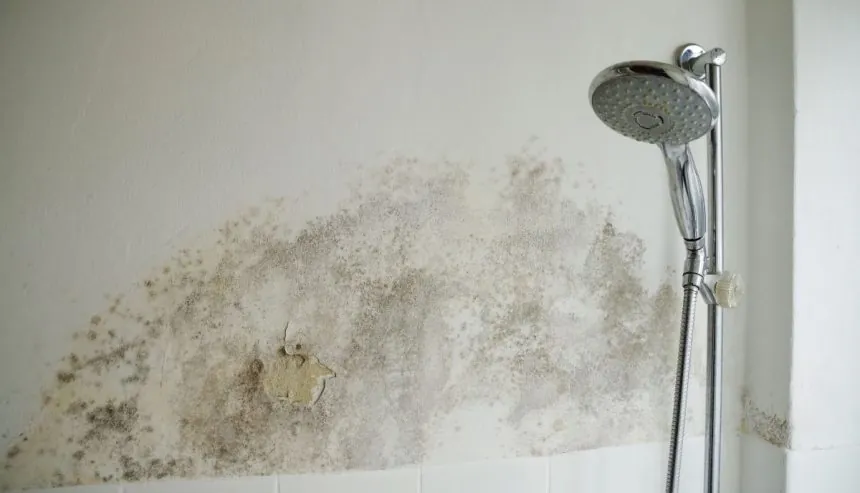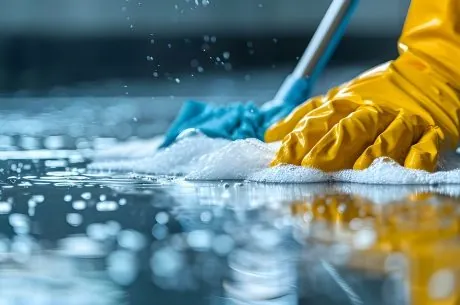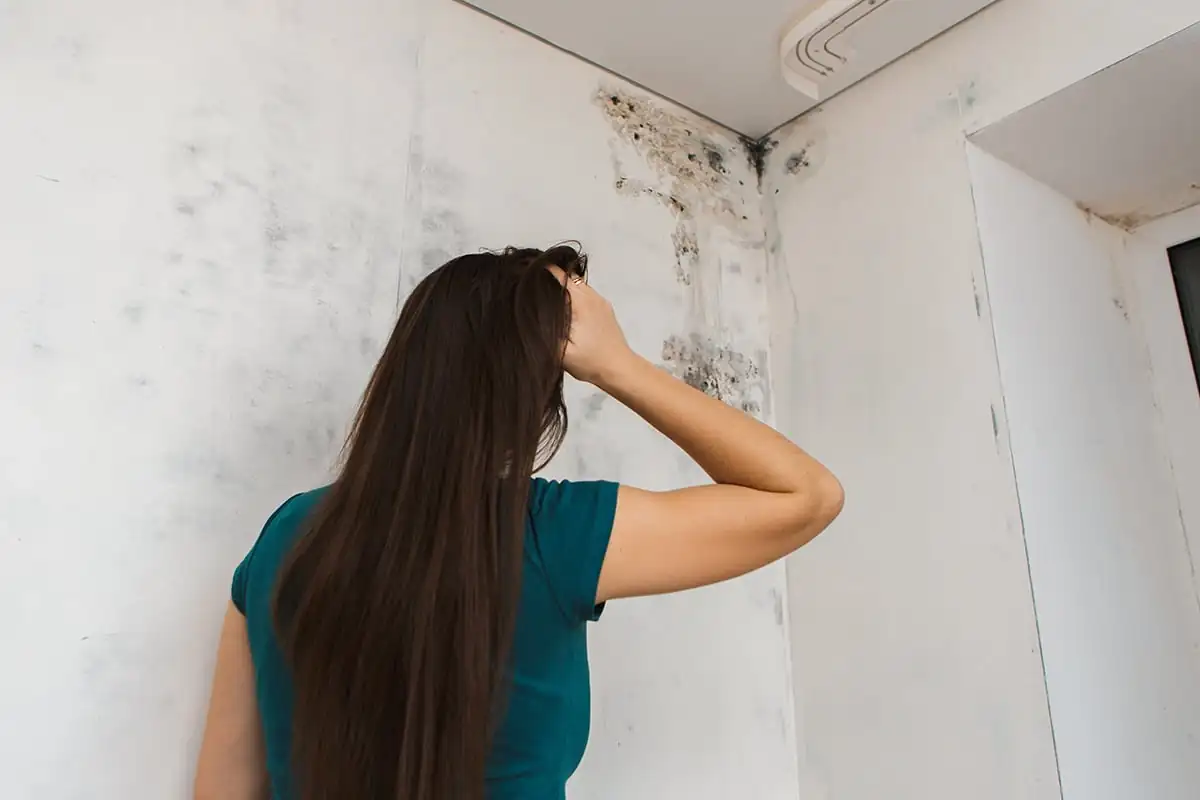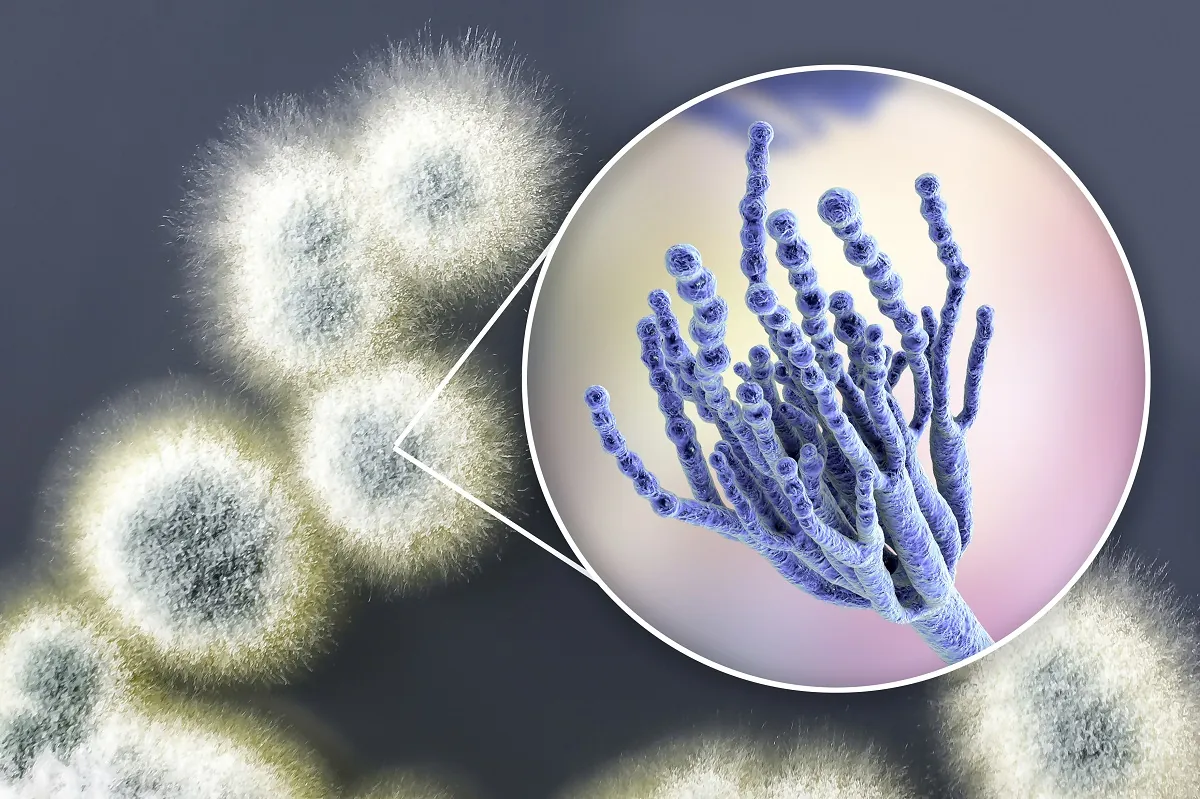Mold in the bathroom is a hazardous problem that should be addressed as soon as possible. Mold is infamous for producing spores that, when inhaled, can cause anything from rashes to headaches to respiratory problems. At-risk groups such as the very young or old and people with compromised immune systems, mold sensitivities and allergies, or asthma can have severe reactions to mold.
Why Does Mold Grow in Bathrooms?
Bathroom mold occurs primarily because of high humidity levels and poor ventilation. This creates an environment ripe for mold spores to grow and reproduce. Mold loves damp areas, and bathrooms are some of the dampest — if not the dampest — areas in your house.
The bathroom ceiling, bathroom walls, shower tiles, grout, shower curtains, and the vents of exhaust fans are the most common locations for mold to accumulate because of the moisture that accumulates on or near them.
Mold comes in a variety of colors. For example, Stachybotrys, a black mold, is notorious for being highly poisonous. Nonetheless, it doesn’t matter what type of mold you’re dealing with—all molds found within the house carry the risk of health issues.
Exposure at any time puts you at risk for respiratory ailments, headaches, skin irritation, and more. For these reasons, we recommend that you move to eliminate the mold in your bathroom as quickly as possible.
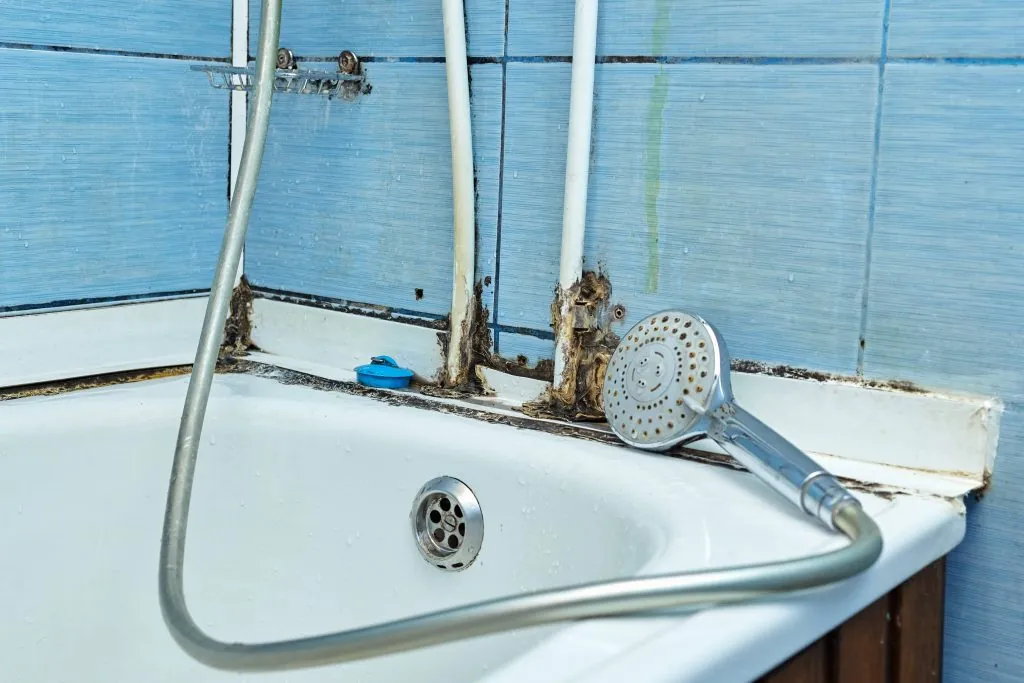
Mold in Bathroom: How to Get Rid of It
Mold growth in your bathroom is a scary possibility, and we’ve established that it’s terrible. What can you do, then? Fortunately, visible mold in the bathroom is simple to remove, and there are a few everyday household mold-killing products and tools you can use to get rid of the problem.
Removing Bathroom Mold Growth Safely
We never recommend undertaking the task of cleaning up mold from a surface area greater than 10 square feet. If this situation occurs in your bathroom, please get in touch with a professional mold remediation expert to safely mitigate your mold situation. Mold removal can be dangerous work, even when it doesn’t seem like it should be.
However, if you insist on treating the mold yourself or performing any mold removal covering more than a few square feet, there are essential and significant precautions you must take. You don’t want to risk polluting the rest of the home, spreading the mold to even more areas, and, more importantly, you don’t want to breathe in or expose other people or pets to the potentially high quantities of hazardous mold spores.
- Wear old clothes and shoes that you can launder or throw away after the cleanup work.
- Wear gloves, goggles, N-95 mask, or P-100 respirator.
- While cleaning, set a cheap or old box fan in the window to ventilate the area. When you’re done cleaning, dispose of it since the spores are nearly impossible to remove. Close the window once completed to prevent spores from blowing back into the room.
- Wrap and tape any moldy carpeting in 6-mil plastic and double-bag mold-infested debris in garbage bags for disposal.
- While you work, dampen moldy places with a sprayer to prevent airborne spores from spreading.
- Cover ducts and doors to keep spores from spreading. Turn off your air conditioner and furnace, as well as any other equipment that might push air around.
- After vacuuming, keep your wet/dry vacuum outside.
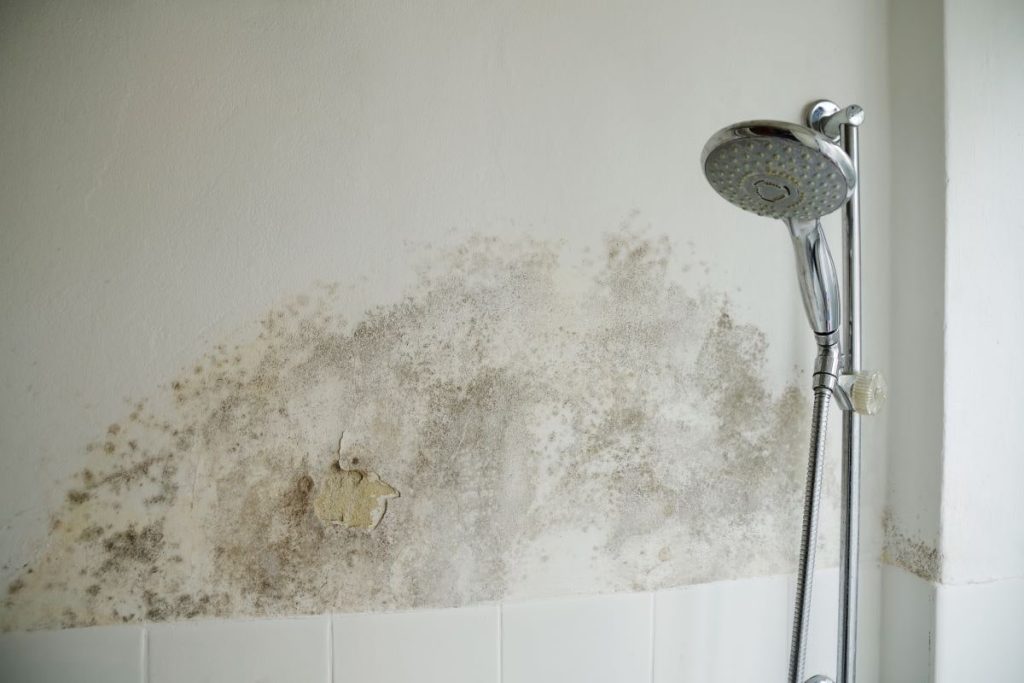
Vinegar
You may use white or distilled vinegar to get rid of bathroom mold growth.
- Use a spray bottle to soak the moldy area with vinegar.
- Allow it to sit for 30 minutes.
- Scrub with a scrub brush.
- Spray a second time, leave for another 30 minutes.
- Rinse with warm water.
Baking Soda
To make a cleaning paste, you may also combine 1/2 cup baking soda and several teaspoons of water.
Apply it to the mold, leave it for 10 minutes, then use a brush to remove it.
If there is mold on or behind the drywall or underneath the subfloor beneath bathroom tile—the tiles may appear to be tilted or shift when you touch them—you’ll need to hire a professional to clean and repair the area.
Removing Mold From Painted or Wallpapered Walls
White vinegar, borax, and water effectively remove mold from painted surfaces. You’ll need a spray bottle and a few other supplies to clean the walls.
- Combine two tablespoons of borax with 1/4 cup white vinegar and 2 cups of hot water in a plastic bucket or bowl.
- Fill a spray bottle with it.
- Spray the solution on your painted walls.
- Remove the residue by scrubbing it repeatedly and wiping it clean with a damp cloth. Spray once again and sit for 10 minutes before drying.
Looking for tips to remove mold from textiles, too? Check out our tips to remove mold from clothing.

How To Prevent Future Mold Growth
Molds exist in all environments, but it requires constant moisture to reproduce and grow. That’s why a bathroom is such an ideal environment for spores to flourish. When there’s moisture, whether it’s in the sink, the bathtub, or the shower, there are ways to prevent this from developing into a full-blown mold problem.
The key to mold prevention is to keep the moisture level down with proper ventilation. Be sure that an exhaust fan is installed and functioning properly to circulate the air in the entire bathroom. Ensure there are no water leaks from the faucets or valves and that the drains aren’t clogged.
Water dripping constantly or gathering in one area of your bathroom is a great way to promote mold growth and ensure that your entire bathroom remains damp. If any leaks in the pipes or walls need repair, do so expeditiously.
Contact PuroClean For Professional Mold Remediation Services
Mold issues can pose a challenge to homeowners, but thankfully, you don’t need to go about it alone. As “The Paramedics of Property Damage®,” PuroClean is ready to assist you with professional mold mitigation services.
Our technicians have extensive training in the most effective strategies to get rid of mold safely and efficiently. So if you spot mold in your bathroom or anywhere on your property, contact your local PuroClean office immediately. Our office locator can get you easily connected, or call us at 800-775-7876.
